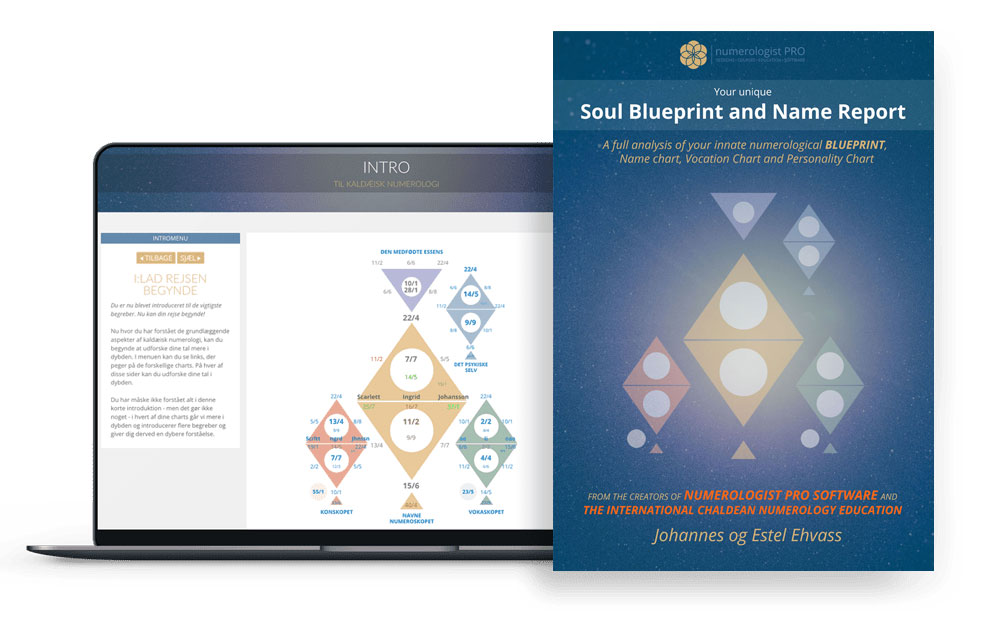Renaissance Astrology

Estel Ehvass
Welcome, dear reader! The Renaissance marked a pivotal time for many disciplines, and astrology was no exception. As society rekindled its passion for the arts and sciences, so too did it revisit the stars. This era, renowned for its rebirth of knowledge, saw astrology intertwine with emerging scientific studies and the broader awakening of human curiosity. The cosmos, during this period, served not just as a guide for destinies, but also as a testament to humanity's relentless pursuit of understanding. Dive with me into this intriguing era, where stars and society found renewed harmony.
Renaissance Humanism and Astrology

The Renaissance period, spanning roughly from the 14th to the 17th century, was a time of unprecedented intellectual and cultural growth in Europe.
A vital movement during this era was humanism, which sought to reclaim the classical knowledge of the ancient Greeks and Romans. Among the many fields influenced by humanist thinking was astrology.
The marriage of Renaissance humanism and astrology heralded a rebirth of astrological study and practice, deeply rooted in the ancient world yet adapted to the needs and nuances of the Renaissance society.
Introduction: The Age of Rediscovery
The Renaissance, often referred to as the ‘Age of Rediscovery,’ was marked by a renewed interest in the arts, sciences, and humanities of antiquity. Scholars scoured monasteries and libraries, seeking ancient manuscripts that had been lost or forgotten. The invention of the printing press further accelerated the dissemination of these classical works, bringing long-lost knowledge back into the public domain. Astrology, which had been a respected discipline in ancient times, found renewed vigor in this climate of rediscovery.
The Influence of Humanism on Astrological Thought
Humanism, with its emphasis on individual experience and the value of human life, had profound implications for astrology. Unlike the medieval worldview that saw human beings as mere pawns in a divine cosmic play, Renaissance humanism argued for the individual’s capacity to shape their destiny. This shift had several implications:
1. Personalized Horoscopes
While generic astrological predictions were common in the medieval period, the Renaissance saw a surge in individualized horoscopes. Astrologers now created charts tailored to an individual’s birth data, reflecting the humanist emphasis on personal experience.
2. Integration with Medicine and Psychology
Renaissance astrologers often collaborated with physicians. They believed that understanding a person’s astrological chart could provide insights into their temperament and health. This melding of astrology with medicine was a direct result of humanism’s influence, which sought to combine different knowledge areas for holistic understanding.
3. Ethical Considerations
With the humanist emphasis on individual agency, astrologers were now more cautious about making deterministic statements about one’s fate. Instead, they saw the stars as influences that could be navigated with free will, rather than inescapable destinies.
Bridging the Past: Greek and Roman Texts Revisited
One of the most significant impacts of humanism on astrology was the return to classical sources. Scholars translated Greek and Roman astrological texts, which were then studied with great enthusiasm. These works provided a rich foundation upon which Renaissance astrologers could build:
1. Ptolemy’s Tetrabiblos
The writings of the Alexandrian astronomer and astrologer, Claudius Ptolemy, particularly his treatise Tetrabiblos, became foundational. This comprehensive work provided a theoretical basis for astrological practice, emphasizing the importance of planetary movements and their influence on terrestrial events.
2. Valens and the Anthology
Vettius Valens’ Anthology, a collection of astrological techniques and delineations, was another influential text from antiquity. It offered Renaissance astrologers a practical guide, complementing the theoretical framework laid out by Ptolemy.
3. Revival of Hellenistic Techniques
Many astrological techniques that had been lost over the centuries were reintroduced to the West via these translations. These methods, such as time-lord systems and annual profections, added depth and nuance to astrological readings and were eagerly adopted by Renaissance practitioners.
In conclusion, the Renaissance era, with its humanist heart, breathed new life into astrology. By revisiting the wisdom of the ancients and merging it with contemporary thought, astrologers of this period reshaped the discipline, making it both a reflection of its times and a bridge to the past. The reimagining of astrology during the Renaissance stands as a testament to the enduring appeal of the stars and the human desire to find meaning in the cosmos.
Timeline of major Astrology Related Events in the Renaissance
Below is a timeline of significant astrological events, key figures, breakthroughs, and notable omens from the Renaissance period:
1450s – Printing Revolution Begins
The invention of the printing press by Johannes Gutenberg revolutionizes the dissemination of astrological texts, making them more accessible to a wider audience.
1462 – Regiomontanus Completes ‘Ephemerides’
Astronomer and mathematician Regiomontanus publishes ‘Ephemerides’, an essential tool for astrologers, which charted planetary positions.
1473 – Birth of Nicolaus Copernicus
Copernicus would later propose a heliocentric model of the universe, challenging the geocentric model that underpinned much of astrological theory.
1484 – Pope Innocent VIII’s Witchcraft Bull
The papal bull ‘Summis desiderantes affectibus’ acknowledges the power of witches and their heretical deeds, often associated with astrological practices.
1486 – Publication of “De Vita” by Marsilio Ficino
Ficino’s work, which includes astrological references, blends Platonic philosophy with Renaissance humanism, influencing the period’s astrological thought.
1496 – First Astrological Book Printed in Italy
“Liber Astronomiae” by Guido Bonatti, a compilation of astrological knowledge, is printed, indicating the continued interest in astrology.
1500 – Augsburg’s Printed Horoscope for a New Millennium
A horoscope printed in Augsburg predicts events for the upcoming century, reflecting the widespread public interest in astrology.
1503 – Nostradamus Is Born
The future famed astrologer and seer, whose prophecies would become legendary, is born.
1506 – Astrology Used in Medicine
The medical faculty at the University of Vienna begins to use astrological charts to determine the timing of medical treatments.
1513 – Heinrich Cornelius Agrippa’s ‘De Occulta Philosophia’
Agrippa’s comprehensive work on occult philosophy, including astrology, becomes a cornerstone of Renaissance magical and astrological thought.
1531 – ‘Great Comet’ Observed and Interpreted Astrologically
The appearance of a bright comet is recorded and widely interpreted as an astrological sign, leading to various predictions throughout Europe.
1533 – John Dee Is Born
Dee would become a prominent mathematician, astronomer, and astrologer, eventually serving as an advisor to Queen Elizabeth I.
1543 – Publication of “De Revolutionibus Orbium Coelestium”
Copernicus publishes his work that argues for a heliocentric universe, which over time profoundly affects the practice and philosophy of astrology.
1550s – Heightened Interest in Judicial Astrology
Europe sees a surge in judicial astrology, with astrologers holding significant social influence and producing annual prognostications.
1555 – Nostradamus Publishes “Les Prophéties”
A collection of 942 poetic quatrains reputed to predict future events, “Les Prophéties” solidifies Nostradamus’s reputation as a seer.
1572 – Tycho Brahe Observes a Supernova
Brahe’s observation of a supernova challenges the Aristotelian belief in the unchanging nature of the heavens, with astrological implications.
1582 – Gregorian Calendar Reform
The calendar reform initiated by Pope Gregory XIII is adopted, impacting the calculation of astrological charts. Astrologers adjust to the new calendar system over time.
1583 – The ‘Great Conjunction’ of Jupiter and Saturn
This astrological event led to widespread predictions of religious and political upheaval throughout Europe.
1600 – Giordano Bruno Is Executed
Bruno, who posited an infinite universe and was influenced by Hermetic, magical, and astrological ideas, is executed for heresy, symbolizing the conflict between emerging scientific ideas and traditional astrological beliefs.
1603 – ‘De Stella Nova’ by Johannes Kepler
Kepler’s work on the new star (supernova) in the constellation Ophiuchus has astrological as well as astronomical significance, contributing to the shift in understanding celestial events.
1609 – Invention of the Telescope by Galileo
The telescope, which Galileo would later use to make astronomical discoveries that challenge traditional astrological frameworks, is invented.
1614 – Publication of ‘Mathesis’ by Julius Caesar Scaliger
Scaliger’s treatise on astrology includes criticisms and defenses of the practice, reflecting the ongoing debates of the period.
1620 – Publication of ‘Astrologia Restaurata’ by William Lilly
Lilly’s work, published later in the 17th century, represents the culmination of Renaissance astrological traditions in the context of the English Civil War.

Johannes & Estel: Renowned authorities in Numerology, Astrology, and the esoteric arts. As the founders of Scandinavia's premier Numerology school, we're delighted to share our insights through this curated series on astrology. Dive in and discover the stars.
The Worlds Most Advanced Numerology Report

Your birthdate reveals your unique life purpose, potentials, talents, weaknesses, and karma in this life.
Your names show what you attract into your life regarding your career, relationships, happiness, money, and success.
GET THE REPORT HERE
Introduction to Astrology
The history of Astrology
Moving beyond deterministic astrology
Foundation of Astrology: Planets, Signs and Houses
Astrology and the Holographic Universe
The Holographic Universe
The Human Psyche as a Mirror to The Solar System
The Human Body as a Mirror to The Star Signs
Astrology Background
Egyptian Astrology
Mayan Astrology
Chinese Astrology
Indian Astrology - Jyotish
Celtic Astrology
Tibetan Astrology
Mesopotamian Astrology
Early Mesopotamian Astrology: The Dawn of Celestial Divination
Enuma Anu Enlil: The Epicenter of Babylonian Celestial Omen Interpretation
Babylonian and Chaldean Astrology
Babylonian and Chaldean Astrology
Chaldean influence and evolution
Chaldean Wisdom: Safeguarding and Transmitting Astrological Knowledge
Hellenistic Astrology
Hellenistic Astrology background
Claudius Ptolemy and Tetrabiblos
Vettius Valens
Dorotheus of Sidon
Persian Astrology
Persian Astrology background
Sassanian Astrology
Late Antiquity and The Transition Period
Late Antiquity and The Transition Period
Hellenistic to Islamic Transition: The Torchbearers of Astrological Wisdom
Islamic Golden Age
Arabian Astrology Background
Arabian Astrology Contributions
Medieval Astrology
Introduction: The Medieval Cosmos
Monastic Preservers: Astrological Knowledge in the Dark Ages
Astrology in Medieval Medicine
Kings, Queens, and Constellations: Astrology in the Medieval Court
The Church and the Stars: A Contentious Relationship
Universities and Scholastic Pursuits: Academic Astrology
Astronomy & Astrology: Tools of the Trade
Medieval Astrological Houses and the Synthesis of Traditions
Transition to the Renaissance: Humanism and the Celestial Arts
Reflections: Medieval Astrology's Echoes in Modern Practice
Astrological Art of the Middle Ages
Famous Medieval Astrologers
Medieval Astrological Texts
Renaissance Astrology
Renaissance Humanism and Astrology
Scientific Advancements and Astrology
The Social Fabric: Astrology in Everyday Renaissance Life
Court Astrologers of the Renaissance
Controversies and Conflicts: Astrology Under Scrutiny
Renaissance Texts and Authors: Continuation of a Tradition
Astrology and Art: Celestial Imagery in the Renaissance
Renaissance Astrological Practices: Evolutions and Innovations
End of the Renaissance: The Gradual Decline of Astrological Influence
Renaissance Astrology's Echo in the Modern World
Enlightenment Astrology
Introduction: The Enlightenment and Astrology
Challenging the Stars: Astrology's Critics during the Enlightenment
Astrology and the New World
Astrology in the 19th Century
The Dawn of Psychological Astrology
Astrology in the 20th Century: A Modern Renaissance
Astrological Associations and Schools
Modern Controversies and Astrology
Astrology and Popular Culture
Astrology and Technology
Current Trends and Future Directions in Astrology
Conclusion: Reflecting on Astrology's Evolution
The Planet Significances
The Sun in Astrology
The Moon in Astrology
Mercury in Astrology
Venus in Astrology
Mars in Astrology
Jupiter in Astrology
Saturn in Astrology
Uranus in Astrology
Neptune in Astrology
Pluto in Astrology
Chiron in Astrology
Black Moon Lilith in Astrology
Pars Fortuna in Astrology
Ceres in Astrology
Houses in Astrology
Introduction to Astrological Houses
The Angular Houses
The Succedent Houses
The Cadent Houses
The 1st House
The 2nd House
The 3rd House
The 4th House
The 5th House
The 6th House
The 7th House
The 8th House
The 9th House
The 10th House
The 11th House
The 12th House
Interaction Between Houses
Derived Houses, House Rulers, and Interceptions
Conclusion: Synthesizing House Knowledge
All Materials © 2023 & 2024 Numerologist PRO
Terms of Service: Information provided by Numerologist PRO and/or from this web site is not intended as advice (medical, psychological, financial or other), nor is it intended to replace your work with a qualified professional (medical or otherwise). You should maintain your relationship with your providers and consider the services of this site as informational only. Any information, stories, examples, or testimonials presented on this website do not constitute a warranty, guarantee, or prediction regarding the outcome of an individual. This web site is a sharing of knowledge and information of numerology/energy work based on the experiences of Numerologist PRO. You are encouraged to make your own decisions based on your own research and inner guidance. By booking and receiving services, you agree to fully release and hold harmless Numerologist PRO and all it's affiliated numerologists from and against any liability or claim that may arise out of or in connection with their service(s).
Numerologist PRO © 2021

CONTACT
numerologist@numerologistpro.com
LIKE US, and get free numerology tools, info about your personal numbers, best business dates of the year - and more!
YOUR FREE NUMEROSCOPE CHART
Enter your name and email below and get access to our free online numerology chart tool.